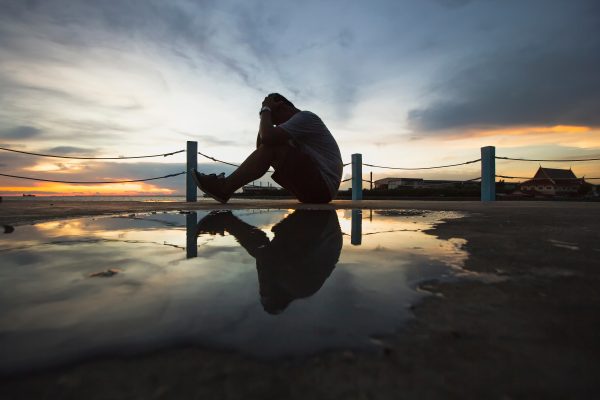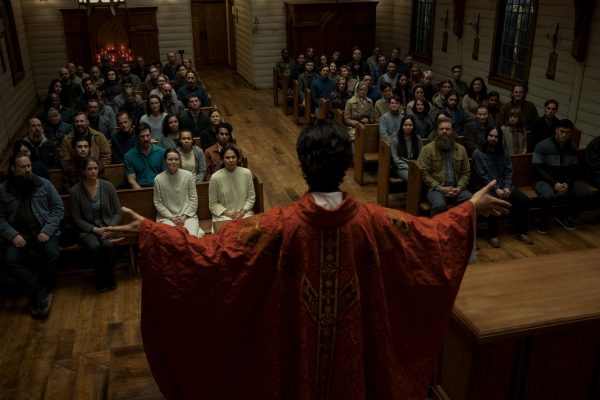Did the show deserve all the attention it got?
Did the show deserve all the attention it got?
A majority of people with a functioning internet connection and a digital device have Netflix, and if not, we all steal the account credentials of someone else who pays for a Netflix subscription (and if you’re the one supplying, you’re the real MVP). As such, it comes as no surprise that so many people watched ‘Th1rteen R3asons Why’ as soon as it went live at the end of March this year. A teen mystery drama based on the novel Thirteen Reasons Why by Jay Asher, it took the world by storm and had Twitter users working overtime trying to figure things out as they binge watched it. Yes, I’m kinda late to it all since I only just watched it recently.
Without going into too much detail and giving too much away, the thirteen episodes follow several characters, mainly Clay Jensen, as they listen to tapes left to them by Hannah Baker dictating thirteen reasons why she decided to take her own life (not a spoiler – it’s one of the first things you hear!) and the people/circumstances that pushed her to do so. Though I binge watched it, and believe everyone else did the same, I have several reasons to believe that this show should never have happened.
Here are MY 13 reasons why…
1 – Romanticising suicide
The concept of suicide is, ahead of anything else, a hugely important topic and should never be seen as a glorified way to exit this world. As with all things Hollywood/pop culture, there was a certain romanticising of Hannah’s whole story and the way in which all the things that came her way pushed her to take her own life. Not only did it seem like the only way for her to cope with her problems, but the love story that unfolds itself throughout the episodes (minor spoiler alert) made the death seem like a beautiful way to go. Romanticing and dramatising such a thing can lead to imitation and as we’ll see a little later, there are many people who fell prey to this. Take a bow, Netflix.
2 – Graphic content
Major spoiler alert – if you haven’t watched it yet, then move right on to point three. If you have, then I’m sure you’ll agree that there were many graphic scenes that should not have been made available to younger audiences, and some which should never have been displayed such as that of rape and that of suicide. They could have been alluded to, or laced into the storyline without the actual visual representations on screen. Yes, both are extremely important issues that do happen and should never be ignored in society but to display them so brazenly for all to see, and as I will discuss shortly, for some to be able to copy, is something which should have been better thought out.
Further to this, it should have shown at least some awareness of the World Health Organisation’s guidelines for how best to depict such sensitive scenes in media. They not only published it but actually showed how Hannah committed suicide, all the while doing all the things on the ‘what not to do’ suggestions.
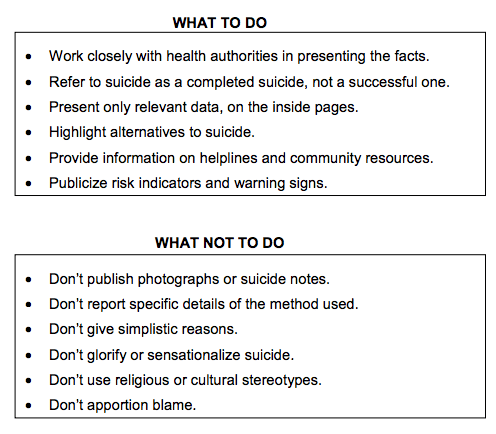
3 – Spikes in Google searches
Recent research (since the show was aired) has shown a spike in people researching suicide methods. One expert, John W. Ayers, a computational epidemiologist based at San Diego State University, has voiced his concerns over this. His research letter was published in the Journal of the American Medical Association; through his research he found more than 600,000 news articles and more than 11 million tweets about 13 Reasons Why during the three weeks after the show’s premiere. Further to this, his team found that:
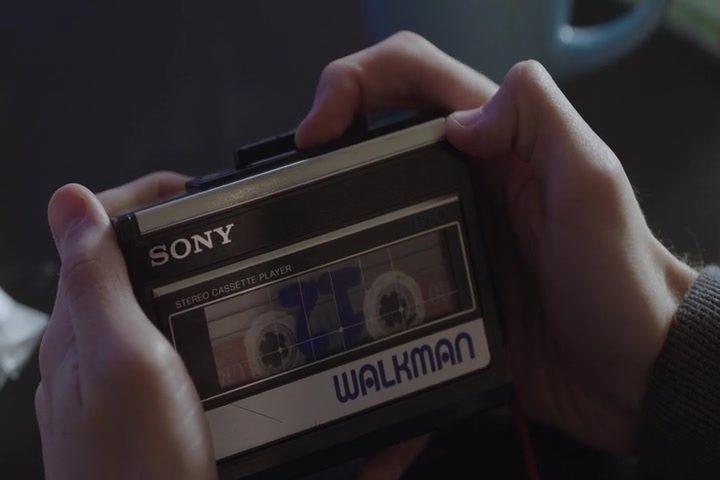
All suicide queries were cumulatively 19% higher for the 19 days following the release of 13 Reasons Why, reflecting 900 000 to 1.5 million more searches than expected. Seventeen of the top 20 related queries were higher than expected, with most rising queries focused on suicidal ideation. For instance, “how to commit suicide,” “commit suicide,” and “how to kill yourself” were all significantly higher. Queries for suicide hotlines were also elevated, including “suicide hotline number” and “suicide hotline.”
Though the research could not determine whether or not these searches actually lead to someone taking their own life, suicide search trends have been found to correlate with actual suicides, media coverage of suicides concur with increased suicide attempts, and searches for precise suicide methods increased after the series’ release. [Read the ‘results’ and ‘references’ sections of the full report for more information].
4 – A rise in people committing suicide
Phyllis Alongi, the clinical director of the Society for the Prevention of Teen Suicide and a licensed professional counsellor, said,
“Research indicates a vivid description, real or fictional, of a suicide can contribute to and perpetuate sensationalism and glorification, which may lead to copycat suicide behaviours or contagion.”
But hey, let’s not just take the word of a qualified professional. I’ll let the headlines do all the talking on this one:
Netflix drama ’13 Reasons Why’ blamed for inspiring teen girls’ attempted suicide
New Zealand restricts teenage viewing of Netflix drama 13 Reasons Why
5 – Unreliable narrator
Another issue I have with the series is that it is told almost entirely from the voice of Hannah as she narrates each episode through the tape recordings. Though I do genuinely believe that we all have our own truths and interpretations of events, it almost shifts all blame to others, not allowing for them to explain their version of events. It allows for the finger of blame to be pointed at the 12 people mentioned and does not give any space for people to exonerate themselves from Hannah’s accusations.
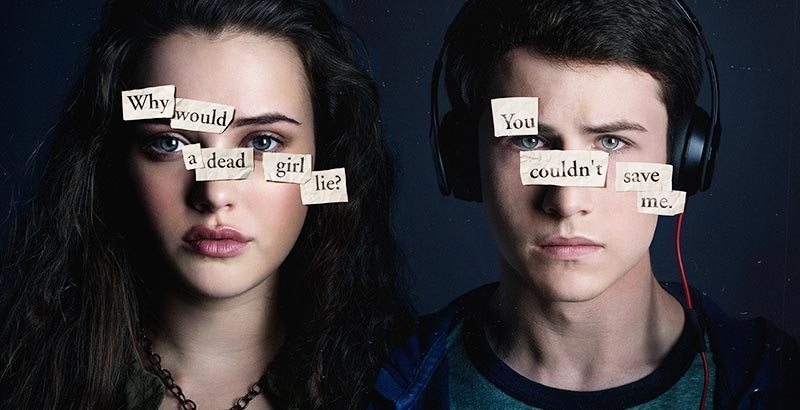
The popular question is why would Hannah’s character lie? Is it a lie, and can anyone have truly saved her if she so desperately believed that the entire world had wronged her? What does this then mean for others suffering from bullying? Is there no alternative to their lives other than to take it?
6 – Provides no alternatives
Which brings me to this. The story does not show any other alternative to her committing suicide. Sure, it shows her approaching a counsellor at one point, who rebuffs her (sorry, spoiler!), which is by all means inexcusable. However, it portrays adults and people in leadership as being unable to value or appreciate the struggles of teens – and I’ll touch on this a little later.
That aside though, let’s consider this: if the character of Hannah had found help, someone to talk to, or some reprieve from everything she was going through, she may still be alive. As such, for the viewers who may be going through their own life issues, it almost suggests that they should stop trying to cope and that they should follow in her footsteps and do the same.
Sure thing, a thousand images suggest that people should get help, from the school posters to the warnings ahead of each episode pushing people to make use of all channels to get help. But if all this is at hand and is accessible, wouldn’t the character have done so herself?
7 – Glossing over mental illness
Sure thing, not all suicides are due to a mental illness, but it seems that the entire premise was ignored in the series. I’m no expert but it is evident that Hannah struggles when it comes to coping with situations, allowing them to build up and take their toll on her psyche and well-being. By no means am I belittling the feelings of the character or of anyone suffering from the same issues, but for a show which wants to bring the topic of suicide into the forefront, there is no mention of mental illnesses. The show had real potential to do so, to make a difference and to destigmatize mental illnesses and to really explore the ways in which a person can get help, but it truly fell short.
8 – Farfetched and just a little too outlandish
Again, I’m not downplaying sufferers of bullying, but let’s be real, how realistic are a lot of the issues that Hannah has? Many, many, many youths have similar issues, if not even worse, and I can’t go into more detail regarding these without spoiling a lot of the plot line. Recent news headlines show youth being targetted for their faith, their sexual orientation, as well as their economic status (hello, privileged white girl?). There were many other issues she went through, such as her problems at home, and that of her unfolding love for another character, so why was all the focus on her high school drama? It limits a majority of her tapes to these small occurrences and belittles all other external factors, which could have been implicit triggers to her final decision to commit suicide.
9 – This should not be accessible to youths
As someone who worked in the education sector in the past, I know just how impressionable youths can be. Many are easily influenced and I know for a fact that those who watched it were highly unlikely to do so with their parents, who could make use of being aware of some issues that students go through in school. In fact, this video released on Twitter hits the nail on the head.
This can't be happening. #13ReasonsWhy pic.twitter.com/GJJNQZVFmO
— 13 Reasons Why (@13ReasonsWhy) April 6, 2017
Adults, especially those with children in schools and who have access to social media should be aware of cyber bullying, and how these exchanges can be the hardest thing for a youth to deal with. But since so much of the marketing for this show was targetted at teenagers, many parents and adults who work alongside them need to watch it to understand current issues that they go through, but probably haven’t done so.
10 – Where are the concerned adults?
Which brings me here – the adults in the show how been seen as invaluable. Whether it’s Justin’s parents, Hannah’s, the teachers or the guidance counsellor, none of them seems to be aware of the real issues in her life, or show any desire to change it. Even the depiction of the pressure from Zach’s mother can be a huge factor in how teens start to view the adults in their life.
Hannah’s parents are seen to be focusing their own issues, so much so, that they don’t realise that she is going through problems of her own. Does this mean that all parents are blind to the suffering of their children, or that all adults have forgotten what it’s like to be a teenager?
11 – Where is the religion in all this?
Yeah I get it, not everyone believes in a God or a higher power but the absence of religion in the story is insane. You have one mention or the slight nod in the direction of religion in the character of Tony who is Catholic. Other than that, and the odd reference to church and Hannah’s burial, there seems to be no indication that anyone of the characters has any sense of belief. I’m someone who believes that religion can be a rope to pull someone out of problems, but this wasn’t even a possibility in this case.
12 – Do it for the ratings
A good many of the Netflix Originals’ shows have become huge hits and while this show was something that garnered a lot of press, it may not be for the right reasons. The producers of the show were widely irresponsible in their depiction of suicide and in my opinion, the show needs to be removed from Netflix. This, however, this is highly unlikely, as the producers have planned for the next season to come out in 2018.
13 – Thirteen
Let’s face it – anything with the number thirteen can’t be good. It’s a scary number at best and this show has reinforced all my scary superstitions.
A lot of good has come from the show, such as encouraging people to really consider their actions and how they may have an impact on others, as well as trigger signs, help line information, and above all else. It has got people talking about suicide and realising that for some, they may see no other way out. However, I feel as though the negative outweighs the positive, especially the careless way in which the creators overlooked the implications of broadcasting such a show. It has made me sceptical of just how badly Netflix wanted to push out another critically acclaimed series and has made me think twice about watching their other original shows, especially their latest movie, ‘To the Bone,’ which attempts to discuss the issue of eating disorders, namely anorexia; the show has already been seen as ‘doing more harm than good’ when it comes to discussing eating disorders, which has the highest mortality rate of any mental illness.
Season 2 is coming soon, and as much as I know it will be a hit, part of me hopes Netflix and the producers will rethink their decision and really reflect on how their production will have an effect on their audience, especially those from younger generations.
From an Islamic perspective, we believe that it is haram (forbidden) for one to take their own life, however, there are many ways in which one can try to cope with real life problems and mental illnesses, and this is something which will be covered in future posts. You can read the following articles that we have published in the past on this topic, all which provide more ways to discuss mental health, suicide prevention, self-help and how religion can help those in suffering, as well as people to contact for help:
- Can you fight depression with religion?
- My story: Dealing with OCD and depression
- 10 practical tips and advice on helping someone dealing with depression
- Allah, depression and me
- “I came so close to taking my own life again, that I knew it was time to change things”
- Self-injury and suicide prevention in the Muslim community
Furthermore, if yourself or anyone you know needs help or wants to speak to someone, I would recommend getting in touch with the Muslim Youth Helpline (UK based) or the Naseeha Muslim Youth Helpline (USA and Canada). Both groups provide free and confidential services to all those who get in touch with them.

